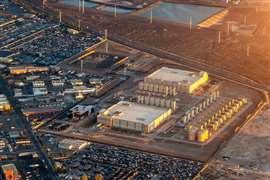Hochtief’s profit turnaround
28 February 2013
Contractor Hochtief has reported net profit of €158 million for 2012, reversing 2011’s loss of €160 million, while new orders were up 24% year-on-year to €31.5 billion.
The results were boosted by a turnaround at the company’s Australian subsidiary, Leighton, which also returned to profit last year after completing overrunning projects that had previously dragged it to large losses.
However, Marcelino Fernández Verdes, chairman of the Hochtief executive board, was muted in his praise for the group’s full-year figures.
“When it came down to it, our self-perception has been better than our performance in many areas. I want to restore Hochtief to its former strength. We will expand in the right businesses, work more efficiently and, with professional risk management, put an end to the nasty surprises,” he said.
The contractor, which was bought by Spain’s ACS (Actividades de Construccion y Servicios) in 2011, is pursuing a new strategy. It will focus in future on large infrastructure projects in four segments – energy, transportation, social and urban, and contract mining.
Non-core assets are being sold to realign the company. In Asia, the sale of Leighton’s telecommunications businesses is already underway, while the group is considering the sale of its facility and energy management operations.
The group also continues to advance its existing plans to sell its airports business and its subsidiary Aurelis.
For 2013, Hochtief said it expected new orders, work done and the order backlog to normalise below 2012’s levels. Profit before taxes and consolidated net profit is forecast to be 10% to 20% higher than last year.




